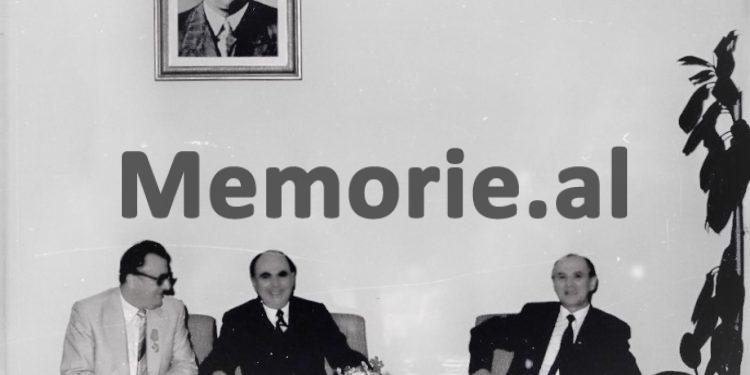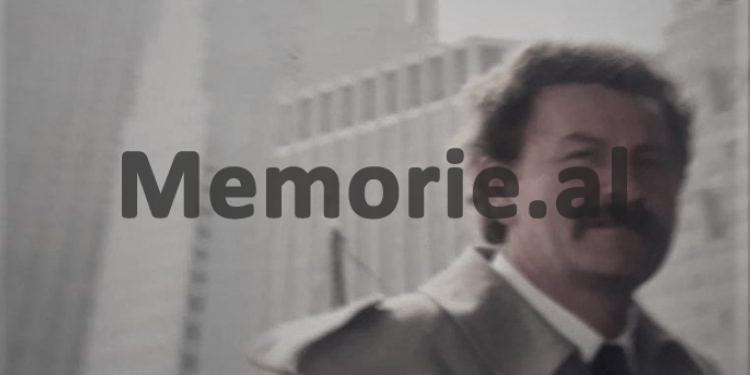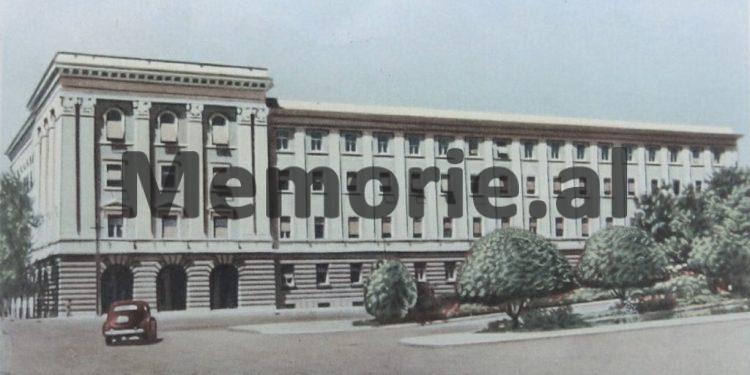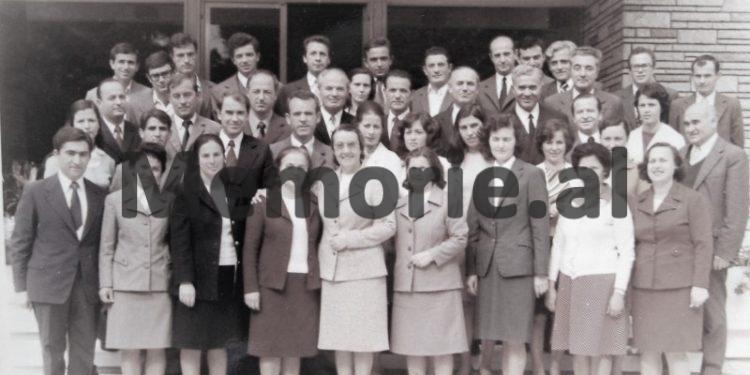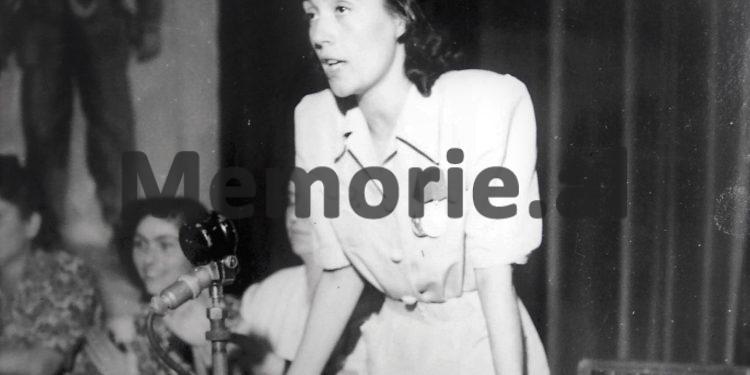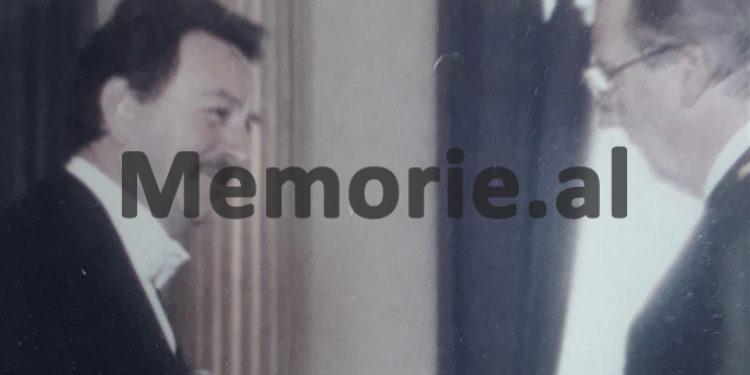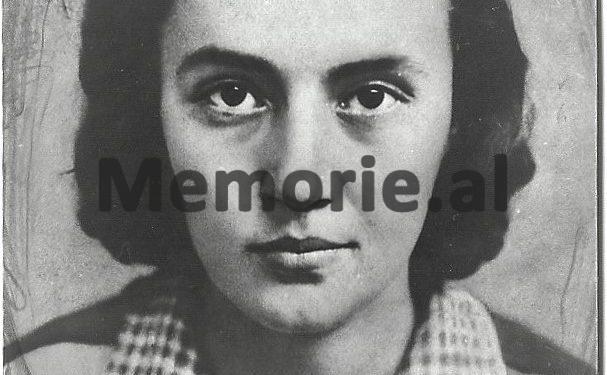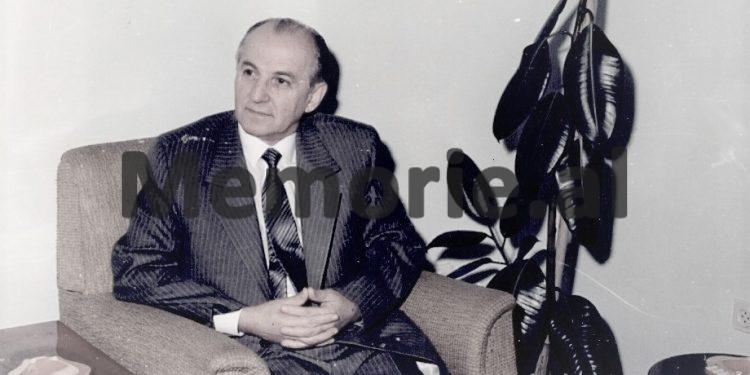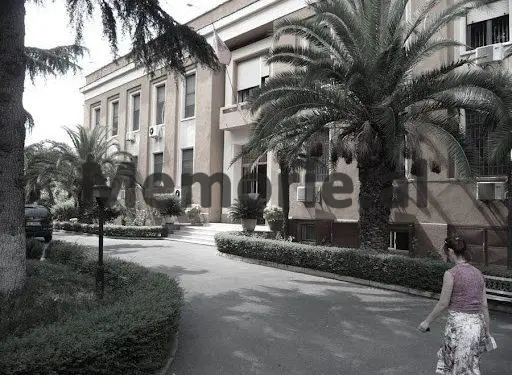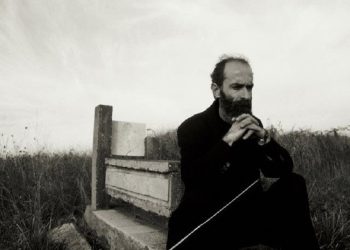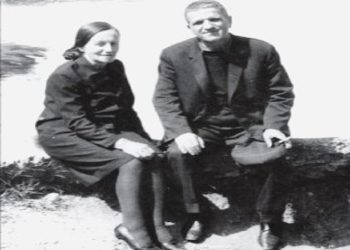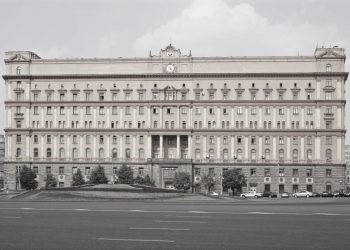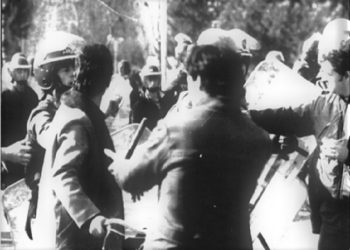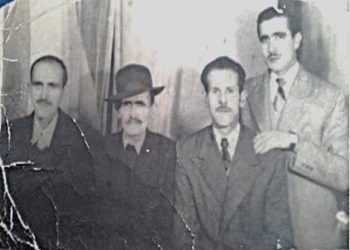By Bashkim Trenova
Part thirty
Memorie.al publishes the memoirs of the well-known journalist, publicist, translator, researcher, writer, playwright and diplomat, Bashkim Trenova, who after graduating from the Faculty of History and Philology of the State University of Tirana, in 1966 was appointed a journalist at Radio- Tirana in its Foreign Directorate, where he worked until 1975, when he was appointed journalist and head of the foreign editorial office of the newspaper ‘Zeri i Popullit’, a body of the Central Committee of the ALP. In the years 1984-1990, he served as chairman of the Publishing Branch in the General Directorate of State Archives and after the first free elections in Albania, in March 1991, he was appointed to the newspaper ‘Rilindja Demokratike’, initially as deputy / editor-in-chief and then its editor-in-chief, until 1994, when he was appointed to the Ministry of Foreign Affairs. with the position of Press Director and spokesperson of that ministry. In 1997, Trenova was appointed Ambassador of Albania to the Kingdom of Belgium and to the Grand Duchy of Luxembourg. Unknown memories of Mr. Trenova, starting from the war period, his childhood, college years, professional career as a journalist and researcher at Radio Tirana, the newspaper ‘Zeri i Popullit’ and the Central State Archive, where he served until the fall of the communist regime of Enver Hoxha, a period of time when he in different circumstances met many of his colleagues, suckers of some of the ‘reactionary families’, etc., whom he described with a rare skill in a book of memoirs published in 2012, entitled ‘Enemies of the people’ and now brings them to the readers of Memorie.al
Continued from the previous issue
“Enemies of the people”
With Arshin Xhezo in the office of Mihal Bisha, why had I asked to leave the “Voice of the People”!!
At one point I had to choose, either to go by his sad flute or to leave the “Voice of the People”. I chose to leave. I had heard that the voluntary departure from the editorial office was also interpreted as a departure from the position of the war, from the reckoning, that the Party had trusted, that is, as the same desertion. To avoid this interpretation, which would certainly have serious consequences for me and my family, I thought I would say that I want to leave “for health reasons”, that I feel very tired, that I sleep a nightmare.
On December 31, 1983, at noon, the editor-in-chief, Arshin Xhezo, called me and told me that we would go to Mihal Bisha, director of the Personnel Directorate at the Central Committee of the Party. He did not tell me anything about why we would meet Mihal Bisha, not even if he himself had talked to him before.
I had heard of Mihal Bisha as the seal holder of hell. I myself had never met him before. He greeted us in his office, cold. What stood out to this man, in his portrait, were the thick-walled glasses, which testified to a pronounced myopia. It seemed as if behind them he was trying to hide the wickedness of his soul. Mihali did not last long; he had no time to lose. He asked me to explain why I had asked to leave the “Voice of the People”. After listening to me, he asked me: “What medications do you use?” I did not know how to answer, because I did not use any medication and I had never used any medication. My knowledge in the field of medicine was zero. To give her an answer, I told her I was using sedatives.
I did not think he was satisfied. Maybe he was expecting something concrete that would talk about my serious mental condition, to then declare me mentally ill! “Oh, he told me, we all use sedatives”! He then told me that I was supposed to go to work at the Foreign Radio, i.e. where I had started working as a journalist 18 years ago, again as a journalist, like on my first day at work. “It will be easier there,” Mihal Bisha told me. Eighteen years of work, thousands of articles broadcast and published, medals and decorations, nothing was worth it anymore. The party showed me who I was, showed me the place I deserved! I did not say: “I am a soldier of the Party”! I told Mihal Bisha what I thought: “It does not seem right to me to return to where I started working 18 years ago. I did not want to leave the “Voice of the People”, to move to another propaganda institution, but to leave the press in general “!
So we parted with Mihal Bisha. Arshin Xhezo did not say a word. Maybe it wasn’t necessary because he had spoken before. Generally people expect to hear good news on New Year’s Eve. Mihal Bisha had hurried to the contrary; maybe I would not have spent this holiday happily.
I myself was not aware of what was being cooked or was being cooked. Party leaders and communist propagandists often used the popular saying at the time: “Water comes out of the well clean, but the road is turbulent.” This proverb was used to show that the Party was always right, that its leadership was as pure as spring water. I believed in this “truth”. It never occurred to me to refer to another popular proverb, according to which, “the fish stinks from the head”, so even that the decision for me was not made by Mihal Bisha, he only transmitted a decision, which was taken by the Secretary of the Central Committee for Ideology, in whose nomenclature I was also.
Sofokli Lazri prevented my appointment to the Ministry of Foreign Affairs!
I started to see employment opportunities elsewhere. In these outbursts I noticed that the Party had not overlooked my decision to leave the “Voice of the People”. Any proposal to hire me, from any institution, came back. This has been done to me even before I asked to leave the “Voice of the People”. I remember here the meeting with the Minister of Foreign Affairs of Albania, Nesti Nase, who asked me to start working at this Ministry. I will talk more about this case later. Now I can only say that I did not start working in this institution. I was told that it was Sophocles Lazri or, as he was called, the “gray eminence” of the dictator and his successor, who had not agreed with my appointment to this Ministry.
This was done in another case. My old friend Fatmir Kumbaro, who worked at the Institute of Marxist-Leninist Studies led by Nexhmije Hoxha, asked me one day if I would like to work at this Institute. It was about working in his Directorate, which dealt with the struggle against modern revisionism, with which at that time mainly identified the Soviet leadership, its ideology and politics. Most of my articles published in “Zeri i Popullit” were in this line. I published two articles each week, striking internationally at what was then called Soviet social-imperialism, the domination and looting of the former communist camp by the Kremlin. These articles also struck down the Russian chauvinist ideology and policy, namely the discrimination and oppression of non-Russian peoples in the Soviet republics, the decomposition of the Soviet state and power, the inevitable disintegration of the Soviet Union. I wrote the latter with pleasure, thinking that I was indirectly drawing a parallel with Kosovo, about which, as I said, we could not write. Thinking that, in essence, I would do the same job at the Institute of Marxist-Leninist Studies, I accepted Fatmir’s proposal.
Nexhmije Hoxha rejected my candidacy for the Institute of Marxist-Leninist Studies!
At a meeting of the Institute, Fatmir Kumbaro presents my candidacy according to the conversation we had together. Sofokli Lazri speaks against. Surprised and in the awkward position of one who seeks to bring someone unsuitable to the Central Committee, Fatmir demands that Sophocles be explained. He did not hesitate to speak more concretely. According to Sofokli Lazri, I was a good journalist, but I had weaknesses in my character. My weakness, always according to him, was nothing but: “He wants to go abroad.” Sophocles himself had admitted the same “weakness” to his brother, whom he had sent abroad! Abroad, he had even launched his son-in-laws. He had also started or would start his son with a one-year scholarship, and would even extend his stay there for another four years.
After Sophocles, the dictator’s wife also intervened, supporting him. She had said: “It is so, as Sofo says. “Union’s mother also sent me a letter asking for the same thing, to take the Union abroad.” Fatmir Kumbaro told me all this at that time, asking me not to talk to anyone, otherwise he was in great danger. I confided Fatmir’s secret only to my mother, Ismet, who had been friends with Nexhmije during World War II. My mother told me that she had not written a letter to Nexhmije Hoxha. She told me that she had talked to him on an anniversary of the Peza Conference, which represents one of the most important events in the Anti-Fascist Movement in Albania, in organizing the fight against the invaders. My mother had taken the opportunity to be with Nexhmije Hoxha in the stands and asked her to make a trip abroad possible for me.
A trip, even a few days, outside Albania at that time was the desire of every Albanian, but it was at the same time as impossible and dreamy as a trip to the Moon. The mother was very disappointed by her ex-girlfriend, who was now at the highest peaks of power and even saw my mother from the heights. I will never forget her words, maybe even her testament. “I,” she told me, “once asked her to do me a favor.” She not only did not do me, but also took me by the mouth. I, she said, am older than Nexhmija and will die before her. If she comes to comfort me in my death, do not accept her!
I was facing the same blocking attitude even now, after the request to leave the “Voice of the People” was approved. I was previously asked to nominate my deputy. I proposed Shaban Murati, the talented journalist we once worked with on Foreign Radio. Shaban’s candidacy was approved. He came to “Zeri i Popullit” and started working as the head of the Foreign Sector. I was neither told that I was no longer effective in this newspaper, nor did they open the way for me to start work elsewhere. Two weeks passed like this, which in my workbook appear unoccupied, so as if I was unemployed. In fact, I was unemployed, my financial relations with “Zeri e Popullit” were terminated on December 31, 1980, but I was not told that. Later I was loved and I asked for a certificate from “Zeri i Popullit” for my years of work there. In this certificate signed by the Deputy Editor-in-Chief Mehdi Koxhaj and the Chief of Administration Drita, it is stated: “Detached from” Zeri i Popullit “on 31.12.1983”.
Shabani came to my office, which was no longer mine, but his, and I did not know that I had to hand over the office keys immediately, to allow him to work on “my” desk! Shabani, of course, did not feel well in this situation, but he did not say anything. He was sitting across from me in one of the office chairs. His stay, long after, reminded me of a letter he had sent me on February 7, 1970, about 14 years ago, when I was on a 3-month reserve officer course in Berat. In his letter, among other things, Shabani wrote to me: “Mon cher ami … In fact, I wanted to start the letter with a quote:” Mercy for the one who falls. “In the end, Shabani ended by writing: “… even there in the army you have not come to mind and you want to remain a challenger”! I did not realize in those days that, in fact, I was slipping rapidly towards a stranger that the Party had decided to close my file by giving me the “challengers” a good lesson, never to raise my head again for whole life.
In this letter, Shabani also wrote to me: “I needed a conversation with you, my friend, but if you know me well, I do not like conversations at a distance.” We were now very close, facing each other, one who would replace the other, and Shabani was silent as in February 1970. He had reason. He could not say to me: “Leave now, Union, leave me the place you proposed to me”! This should have been told to me by Mihal Bisha, maybe even the Press Director at the Central Committee of the Party, Miti Tona, or the editor-in-chief Arshin Xhezo. Everyone was silent as if I no longer existed for them. However, after the first week of January 1984 was over, as I was not being officially told what was going to happen to me, I became interested in finding a solution myself.
Sofokli Lazri again refused for me to go to the Professional Unions, ATSH and Radio-Tirana!
Initially it was Agim Popa, the former editor-in-chief of “People’s Voice” and at that time director of the Directorate for Foreign Relations at the Central Committee of the Party, who made me a proposal. Agimi told me that he had talked to the president of the Albanian Trade Unions, Sotir Koçollari, to appoint me as the head of Foreign Relations of this organization. I gave my consent, but that was not enough. My file was in the Personnel Directorate of the Central Committee of the Party. For me to start work elsewhere, it would have to go where I would start work. My file was not forwarded to the headquarters of the Trade Unions. I later learned that Sofokli Lazri had become an obstacle again.
I was asked to start working in other institutions as well. I mentioned Qemal Lamen somewhere from the beginning of these memories. He was the head of the General Investigation. My friend, Lulzim Hana, had known me about him. Qemali proposed me to work as the head of the Scientific Cabinet of the General Investigation. He also made the relevant request, but the response from the Central Committee was negative. After Qemali, Taqo Zoto, director of the Telegraphic News Agency, asked me to work as the deputy director of this Agency. Even in this case the request was blocked in the Central Committee of the Party. After Taqo, it would be Napoleon Roshi, director of Foreign Radio in the General Directorate of Albanian Radio-Television, who would nominate me as deputy director of Foreign Radio. From the Central Committee the answer was the same, negative. I was always told that Sofokli Lazri was becoming an obstacle.
To my surprise, one day the director of the Press Directorate, Miti Tona, called me to a meeting at the Central Committee of the Party. In fact the surprise was not the meeting with him, but his proposal. Myth Tona told me that he had talked about me as his brother with Sophocles Lazri. He had proposed to Sophocles that I start working at the Institute of International Studies at the Ministry of Foreign Affairs. Sofokliu was the director of this Institute, while the deputy director, as I mentioned, was Vladimir Prela, with whom we had worked together in “Zeri i Popullit”. Myth told me that he knew my relationship with Sophocles Lazri. He also told me that Sophocles had assured him that I had nothing to worry about because, after all, as Sofo had said, he seldom went to the Institute, “just to greet, like Ayatollah Komhaini.” Seeing my reluctance, Miti insisted that I think and give answers later, so as not to make a hasty decision. So we parted together. The next day I got him on the phone to say, “I agree to start work at the Institute for the Study of International Relations.” On the other end of the phone, I hear Miti Tona say to me: “We will eat plum, if it is done”! As if he was not the one who proposed to me, after talking to Sofon about his brother, as if he was not the one who had received the right guarantee from “Khomeini”!
I, before talking to Mitin, had a brief meeting with Vladimir Prela. I told him about the proposal that Miti Tona had made to me. “If you listen to me,” Vladimir told me, “as a brother I tell you not to come to the Institute.” One proposed me the Institute as a brother, while the other as a brother, advised me the opposite! However, the Institute was forgotten. Neither our Myth nor anyone else was remembered for it. They were playing with my nerves and my future, seeking to show me that I, nothing, had angered the gods and that they would take revenge.
ARCHIVED
Thoma Murzaku hired me at the General Directorate of State Archives!
In mid-January 1984, I finally started working as Head of the Publishing Branch, in the General Directorate of State Archives. It was Thoma Murzaku, director of this Directorate and my former professor of Balkan History at the Faculty of History-Philology, who hired me. Even Thoma Murzaku, at first, was not forwarded my file. Without this file he could not hire me either. I continued like this unemployed, but with files in the Personnel Directorate of the Central Committee!
Reshat Alia, Ramiz Alia’s older brother, also worked in the General Directorate of State Archives. Reshati was a good man, a good man, who wanted to help anyone he knew and who turned to him for help, but who could also do a lot of harm. Thoma Murzaku has used and abused Reshat, to solve all the problems he faced and the institution he ran. He told Reshat to talk to his brother about my case. Reshati talked to Ramiz Alia who told his brother: “The union will go where it wants”. Excluding Foreign Radio, I had wanted to start working in all those institutions, which had asked me in front of the State Archives and where I was not allowed. The same fate would have followed me, for sure, even in this case. If this did not happen, it is dedicated only to the “whisperer”, that is, Ramiz Alia’s brother, who whispered to him Thoma Murzaku’s request for me. In communism there was a lot of talk about the right policy of the cadre according to the merits and values of each. In practice a “family” conversation, or something similar, was much more effective and had more value than anything else.
I had not heard much about the State Archives. My knowledge of this institution was almost zero. I had worked there for a few days in 1966. In the last year of my studies, I prepared as a diploma thesis “Views and political struggle for the preservation of independence and territorial integrity in the Albanian National Movement 1919-1920”. For this purpose, I also did research on some funds in the Central State Archive. To me, this institution represented an attractive mystery, which hid many truths and lies. The truth and the lie were kept there for the founder and the first director of the Central State Archive, Zef Malaj, condemned by the dictatorship.
For Zef Malaj, I knew something from reading “History of the Communist Party of Albania”. In this publication, as well as in the teaching of this history in school and at the University, Zef Malaj was presented as the chairman of the Communist Group of Shkodra, the first communist group in Albania, but also as a Trotskyist element.
I later learned that Zef Malaj was an intellectual who had studied in Austria, that he was more of a social democrat than a Bolshevik-type communist. He was imprisoned by the monarchist regime in Albania, by the Italian occupiers, who exiled him to the island of Ventotene and then, twice by what was called popular power, ie by the communist dictatorship, in 1945 and 1973. When he was imprisoned for the second time, to save the family, Zef Malaj made the formal separation from his wife and children.
I have recently learned that the first director of the Albanian State Archives was in danger of being eliminated during the war years by Enver Hoxha himself. Ironically, there are documents in the Central State Archive itself, founded by Zef Malaj, which prove how Enver Hoxha ordered: “Zef Malaj … should be decorated with a crescent bullet. He is not good, so he must disappear. Find a way that is not understood, but in no way neglected. The dictator, in ways worthy of the mafia clans, virtually wiped out all the leaders of the communist groups that had existed in Albania before the formation of the Communist Party. No one should “shadow” him. The history of communism in Albania should be related only to his name, power and glory should belong only to him.
In the State Archive in 2007 to donate the scores of the XI Festival!
Zef Malaj died blind in the cells of communism in 1979. His family also hides his grave. As one of his nephews tested, this tomb was accidentally discovered in recent years by a passerby. I first “met” Zef Malaj in 2007 on a visit to the State Archives. In fact, I went there to donate to these Archive 20 original scores with the respective lyrics, which were performed at the XI Radio Television Song Festival. I had provided them while working at Radio Tirana and I had kept them very carefully, hidden from any curious gaze. I knew what a danger it would be if these scores were found in my house during the dictatorship. At the State Archives I met Vera Doden. I remembered this good woman, the silent worker, always worried that something would not be right. It was now slightly gray. Vera continued to be chairwoman of the Exploitation Branch, perhaps even for a short time as her pension was approaching. After I gave her the scores with the music of the songs of the XI Festival, Vera proposed a short “walk” in the premises of the institution. In the central building, on the walls of the lobby on the second floor, were exhibited photos of all the directors of the State Archive. On top of them was the photo of Zef Malaj. Next to him was that of Spiro Rusha. Even this one hit by dictatorship.
I met Spiro Rusha at the beginning of the Democratic Movement in Albania. Before the meeting he had sent me a letter instructing me as “my son” to beware of communist revenge or punishment. One day he came by himself and met me with all the joy in the editorial office of the newspaper “Rilindja Demokratike”, just to get to know me. He was somewhat old, but not fallen, he still had plenty of energy and enthusiasm.
During the dictatorship, I was used to hearing the name of Spiro Rusha after every broadcast that was made to the decision of the Council of Ministers on the Albanian Radio and Television. At the end of each decision, the signature of Prime Minister Mehmet Shehu and the Secretary General of the Council of Ministers, Spiro Rusho, was read. I do not know in what year he spent as director of the State Archives. During my years of work in this institution, I have heard him mentioned by the staff as a “tough but fair” director!
I knew his three daughters better from Spiron. In high school I was in a class with Donika Rushon, Spiro’s eldest daughter. She was one of the excellent high school students. He continued his higher studies in China. It does not seem to me that these studies ever served. In high school we studied, in addition to Russian, also German. Donika was drawn to her. After the overthrow of communism I met her at the German Embassy, where she worked as a translator. / Memorie.al
The next issue follows




